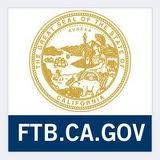Tax board criticized for delays

 California’s Franchise Tax Board is taking too long to complete audits and resolve taxpayers’ refund claims, protests and appeals, costing businesses hundreds of millions of dollars, according to the California Taxpayers Association.
California’s Franchise Tax Board is taking too long to complete audits and resolve taxpayers’ refund claims, protests and appeals, costing businesses hundreds of millions of dollars, according to the California Taxpayers Association.
Gina Rodriquez, vice president of state tax policy for CalTax, voiced her concerns last week at the FTB’s annual Taxpayers’ Bill of Rights hearing. The Bill of Rights, which was enacted by the state Legislature in 1988, spells out the rules and procedures for tax audits and taxpayer protests and appeals of those audits. The protest is the first step in the audit appeal process.
The FTB has consistently shortchanged taxpayers by not following its own guidelines, according to Rodriquez. “CalTax brought this to your attention last year,” she told the tax board. “However, the FTB seems to have fallen a bit short in addressing our concerns. I want to go through this with you again this year.
“Taxpayers’ liabilities should be determined within a reasonable timeframe. Once determined, any overpayment should be returned to them as quickly as possible. The FTB’s high compliance backlog seems to violate the spirit of the Taxpayers’ Bill of Rights. The FTB must do more to avoid any conflict between protecting revenue and providing due process to taxpayers.”
FTB guidelines require the agency to resolve tax protests in two years. But in 2013 it was taking FTB auditors nearly twice as long, 44 months, to close out protest cases, according to Rodriquez.
Report
The 2014 annual report to the Legislature by the FTB’s Taxpayers’ Rights Advocate Steve Sims has also noted the problem. “For the past several years, I have raised concerns about the additional time and resources required for taxpayers to protest an assessment,” said Sims in the report.
“I am pleased that the focused efforts by our Legal and Audit Divisions to resolve older protests resulted in a 200 percent increase in the number of cases resolved, and an overall reduction of 12 percent in the total number of protest inventory cases. Yet, for the business-entity, docketed protests resolved by our Legal Division for FY 2013/14, only 47 percent of the tax at issue was sustained. This once again raises concern about the number of revisions to assessments that occur once a business entity taxpayer elects to file a protest.”
The FTB has also fallen short in responding in a timely manner to taxpayers’ claims for refunds, said Rodriquez.
“The FTB has in its inventory more than 500 refund claims that are more than three years old,” she said. “This is an unacceptable number, as it means hundreds of millions of dollars – and maybe more, we don’t have a real good handle on the dollar amount – [withheld from] the taxpayers’ working capital, stifling economic advancement.”
CalTax doesn’t know how many hundreds of millions of dollars in potential refunds are being tied up by the FTB’s delays because “the FTB does not have a complete picture of its refund claim inventory,” said Rodriquez. “[FTB] staff is unable to tell CalTax whether the inventory has increased since the 2008 enactment of the Large Corporate Underpayment Penalty, also known as the LCUP.
“The 20 percent LCUP is quite punitive. So punitive, in fact, that taxpayers are forced to file their original returns with an overpayment to avoid the imposition of the penalty. Then they subsequently have to file refund claims for legitimate issues. The LCUP does ultimately increase government and taxpayer costs due to the increased workloads in the returns. The legislative purpose in enacting the LCUP in the 2008 budget negotiations was to raise revenue. And I ask: Has that goal been reached?”
No interest
Adding insult to injury, the FTB does not pay interest on the refunds, potentially allowing the state to use the money for years, itself accruing interest, without any compensation to the taxpayers.
Noting the IRS resolves federal tax refund claims much quicker, Rodriquez asked, “Why can’t the FTB have a dedicated staff to work those refund claims? We know we have a problem; let’s address it with some resources.”
FTB is also dragging its heels on audits, according to CalTax.
“Delayed audits have led to unfair audit practices,” said Rodriquez. “FTB is not completing many multi-state and high-level audits in a timely manner. In addition, CalTax members have reported a growing trend among auditors not to process overpayment issues before the audit closes. Some auditors request that taxpayers file a claim for a refund to address the overpayment issue for the same year that it’s under audit. This not only violates the published audit guidelines, but it worsens the high [backlog] inventory problem we have with refund claims.”
In addition, the FTB is taking too long to resolve appeals, she said. “Taxpayers deserve to have their appeals heard within a reasonable time frame. As years pass with a pending appeal, interest accrues, the audit file becomes stale, taxpayers die, key witnesses move on or become unavailable. Additionally, taxpayers lack any guidance for the years subsequent to the years under appeal.”
Concerns
Sims acknowledged CalTax’s concerns, but said the FTB is working to improve its performance, despite not having enough staff members. “[M]any of those issues have been raised in my annual report to the Legislature,” he said. “But I also want to talk to the effort the department has made in terms of trying to fix some of the problems. I’ve been working with our audit and legal division on this issue for more than the two or three years it’s been raised – more like five years. And I do want to say a lot has been done in terms of improving the process.
“One of problems regarding the protest inventory – she’s correct, it’s taking too long, in my opinion. But at the same time, they have reduced the volume of protests. I don’t know that we would have been able to do both at the same time because of the limited resources. Resources are somewhat limited. There is a resource issue that really needs to be addressed.”
Another reason for tax disputes taking longer to resolve is that they tend to be more complex than in prior years. “Taxpayers are becoming a lot more sophisticated,” he said. “The issues that are getting filed on these claims, they are full-blown audit-type issues. They require experienced resources. The department has taken certain steps to involve attorneys in the process a lot earlier to try to assist in handling these types of issues.”
Issues
Board Member Jerome Horton would like more information on the causes of the delays. “Why don’t we set up a meeting so I can have an opportunity to take a look at these in a little more detail,” he said. “I would like to have the department delineate those items that are systemic, those that are institutional and then those that are resource-type issues. If we are having a resource issue, we should consider requesting additional resources to be able to address those.”
A tax concern was also raised by Lynn Freer, president of Spidell Publishing, which provides publications and seminars for tax professionals. She said California tax law differs from federal tax law concerning the Affordable Care Act, which she dubbed “the Accountants’ Crying Act.” That lack of conformity can complicate taxes for self-employed filers who receive an insurance premium credit in 2014 only to find out they have to pay the credit back in 2015 because their income turned out to be too high to qualify for the credit.
“There are all sorts of technical issues involved,” said Freer. “So we would like to request guidance. We would like a rapid resolution. But one step further, it would be nice to have conformity. If we were to automatically conform to federal law, it would be much easier for these taxpayers. Unfortunately, folks who are involved in this premium credit are typically going to be lower-income taxpayers. They are least able to afford to pay folks to figure these things out, or least able to handle problems when they arise later.”
The FTB board did not respond to her request for Obamacare tax clarification.
Related Articles
Cal Chamber sues state for profiting from AB 32
Nov. 15, 2012 By Wayne Lusvardi The California Chamber of Commerce on Tuesday sued the state of California to stop
Tea Party time in California?
MAY 20, 2010 By JOHN SEILER Normally a trendsetter, California might be a laggard in following the political revolutions back
Assembly committee kills bond misuse bill
June 20, 2012 By Katy Grimes SACRAMENTO — California’s bond debt is on steroids, but it’s the taxpaying residents who will



